#caesarean
Text
The birth story.
This is a long one..
I was 41 weeks and 3 days pregnant when I had my last 'normal' appointment with the midwife team. It was then that they told me if I hadn't naturally gone into labour in 2 days, then they would have to induce me.
Not exactly what you want to hear with your first pregnancy. Lots of people tell you lots of stories and how induction can be more intense or it was the best labour they'd ever had. Whatever, everyone is different, so I took it all with a grain of salt and hoped for the best.
2 days went by and I had my next appointment where the midwife and Drs recommended a 'Cook's Catheter'. To try and prompt my body to do its thing without the need for an IV.
Well I came back the next morning and still no labour! Shit. I was going to have to be induced.
Ok, so I'm in the birthing unit ready to go (and completely terrified but trying to hold it together).
They take out the Cooks Catheter and I'm 4cm dilated. Great! Almost half way there!!
The nurses broke my water, put the IV in and the contractions began.
Holy shit.
To quote my mum- "they don't call it labour for nothing." Boy, was she right. I had all the pain from my contractions in my lower back, and it was excruciating!
I'd never had anything hurt as much as those bloody contractions! No one told me as much, but I presume my baby was posterior because of all the back pain.
I was using heat pack after heat pack. Having my husband massage my back as hard as he could and it still barely helped! I was using the gas, which I think mainly just helped keep my breathing under control...
After 5 hours, I was ready to up the ante - I asked the nurse for the next step in pain management - Endone.
Well, all of the people who say Endone is the best are all fucking liars. It didn't take any of my pain away, just made me super drowsy and want to fall asleep even during a contraction!
Right, so by this time, I'd had the IV induced contractions for roughly 12 hours, and every time the nurse did an internal exam, my cervix was at 4 cm. There was no change! I could have cried! Well.. I did! And I was exhausted!!!
So the reason it took so long to get to this point was because every time I contracted my baby's heartbeat was waver and so the nurses couldn't increase the hormones to get me to dilate more/faster. They turned it off for a short time, and bub was all good, but then they turned it on, and the heartbeat wavered again.
So the Dr recommended an emergency ceasarean section due to failed to progress. Meaning my body didn't do what it was supposed to and bub couldn't come out!
I was ok with having a caesar, that part honestly didn't bother me. It is what it is and the team I had were incredible.
I had an epidural, which was heaven! For about half an hour. Until it made me vomit and bubs heartbeat wavered again and I needed to lay on my side. Well then the anaesthetic drained to the side didn't it and I started feeling the contractions down the other side again! This certainly wasn't what I expected when they gave me an epidural.
Ok, so after this, we headed to surgery. We're talking 17hrs after being induced now.
I'd never had any sort of surgery in my life. Only ever had mild local anaesthetics!
So when they numbed my torso and down it was the weirdest feeling. So see my legs being moved but unable to feel it. I hated it.
And then, being in the ice-cold theatre, thank God I had my husband by my side because I was downright terrified.
Terrified of feeling pain (which I didn't)
Terrified of the surgery (I would visualise it and freak out)
Terrified something bad would happen to me (haemorrhage or have tools left inside)
Terrified most of all that I wouldn't hear my baby cry.
During the surgery I kept vomiting and felt gross as fuck. The lovely nurse suctioned the vomit from my mouth and all was well.
Bub was taken out, and he cried! So I cried in relief! I can't tell you how much relief I felt about that. He had a bit of a hard time breathing, so I couldn't hold him, and he had to go up to special care. My husband went with him, and I went to recovery (where I slept for 2 hours, apparently!!)
I was then taken to the maternity ward and special care unit to see my bub. So surreal being able to see and touch him! Still no cuddles yet though because he was on the breathing apparatus.
I was wheeled back to maternity and tried to sleep. Though that was difficult being so very numb and worried about tearing stitches or whatever else might've gone on down there.
Thus, my baby boy was born, and I am still emotional remembering these happenings. Very emotional.
It was traumatic and downright awful. Will I do it again? Yes, because it's a small drop in the ocean for what I now treasure more than anything.
13 notes
·
View notes
Text
C -section vs. Normal delivery (Laymen POV)
I received many responses, some stating their experience, others telling me their story and the rest giving their opinion. From all the responses, a common phrase I came across was, 'a c-section is never easy' and hence I agree.
Cesarean section, C-section, or Cesarean birth is the surgical delivery of a baby through a cut (incision) made in the mother's abdomen and uterus. Health care providers use it when they believe it is safer for the mother, the baby, or both. The incision made in the skin may be Up-and-down (vertical). -Hopkinsmedicine.org
For some mothers, opting for a caesarean is never a choice. They are forced to, considering the circumstance, to mitigate complications, either to the mother, the baby or both. Recovery takes a long time. Imagine having a wound above your waist, where you normally fasten the belt of your pants, how would it feel? The discomfort, the pain and whatnot. Imagine waddling with that pain and doing chores, despite being asked not to bend, you still end up doing multiple squats unintentionally. Then waking up in the middle of the night to nurse a child, while your eyes plead to be shut while you are in a semi-sleeping position adding more pressure to the wound. The constant fear of having to check, have the stitches removed, why does the stomach look swollen. Is something wrong?
During the surgical procedure the risks that may come about, sometimes losing the ability to have another child, and sometimes being traumatized for life. Some even live through an existential crisis afterwards. The list goes on.
Some sisters have also had bad experiences with their stitches being infected or something similar to that. However, they are unable to express themselves because their spouse or inlaws are of the belief that, a C-section is an easy procedure with no pain and that what the new mother is experiencing is a part of what a normal woman who had gone for a caesarean would experience. Ignoring such a condition could give rise to further consequences, so I highly recommend being educated on it.
Let's say the wound has slowly healed and now years have passed but some of the consequences would remain.
However, in no way am I saying that vaginal delivery is any better. Imagine having to push an entire mini-human out, the size of a watermelon whilst also experiencing a pain similar to that of bones breaking and sometimes ending up experiencing a vaginal tear, that requires stitches. Can't emphasize enough the intensity of the pain, which science has discovered, varies with the mother's moods, fear, experience etc and is different for all.
Now to my second point, 'paternity leave. While we all know maternity leave is given to a new mother for a period which varies from country to country, in my opinion, paternity leave is also a must. Paternity leave is granted in some countries, however not all and if at all it is granted, private companies/institutions don't always grant this luxury. Why a luxury you may ask, for one the father/ guardian also gets a good opportunity to bond with the baby, but most importantly they do understand what their partner goes through and render their support both mentally and physically, walking them through their emotional breakdowns and what not. Ever heard of postpartum depression (PPD) women do require a lot of attention post-childbirth. When I say attention I don't mean materialistic attention, but rather support, help, and also constant affirmation. (Hopefully planning to do another post on PPD)
Point to note.
Carrying a child to term, while experiencing discomfort, mood swings, hormonal imbalance, and sometimes, other complications is beyond strong. C-section or a vaginal delivery has its own pros and cons and shall never be grounds to determine a women's strength. It's sad to see that some 'women' shame other women based on what procedure had been followed during childbirth despite knowing the feelings. This post can never do justice to the above theme, however, hope this helps at least by a fraction. Kindly do not fall prey to what people talk about without knowing facts, lest be brainwashed by them.
Shadeen Ibrahim. (a random girl strolling down a road of misconceptions clearing the path for the forthcoming crowd, whilst making a voice for the crowd that stands by the side and ahead)
#personal#blog#pregnancy#awareness#caesarean#health#writing#thoughts#original#tumblr#typography#writers on tumblr#lawblr#writing community#writers block#law student#chaotic academia#feelings#mother#childbirth#post partum#paternity#maternity#medical#laymen
5 notes
·
View notes
Text
Mom shares horrifying photo of 20 blood clots found in her leg
By Caitlin Tilley, Health Reporter For Dailymail.Com
16:03 15 Apr 2024, updated 16:21 15 Apr 2024
Starla Ellis, 30, from Dayton, Ohio, had recently given birth to her third child
Doctors initially found one clot and sent her home with blood thinner medication
But then her leg went completely stiff and doctors had to remove 20 blood clots
WARNING: GRAPHIC IMAGES
A30 year-old mother has shared…
View On WordPress
0 notes
Text
0 notes
Text
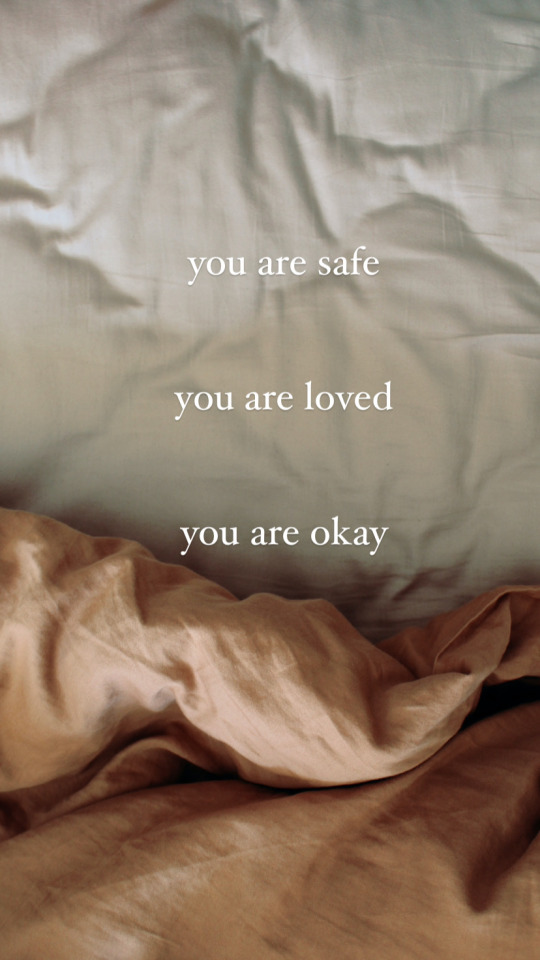
Three weeks postpartum and I’m slowly slowly starting to feel a little more like myself, not the same as the person I was before going in to have my fourth caesarean to belly birth our darling new son, certainly a changed person and I find that always happens with every birth. I find as I go through life that this happens with every big life event and sometimes even the small ones. You’re never the same and that’s okay. I spent a long time trying to go back to pick up the pieces of my broken self and hastily sellotape them back together but they would always fall apart again. I’ve learned over the years, through going to therapy and receiving bereavement counselling due to the loss of our much wanted son, that you sort of shift and change and just as the very cells that make you up are replaced many times over in your lifetime, that’s how it is with your perception of yourself, you’re ever changing.
I’m using this space on the internet to write about what I know. Right now I’m a mum winging her way through the complex and wonderful realm of motherhood, parenting and finding herself after pregnancy, birth, loss, postpartum and toddlerhood.
0 notes
Text

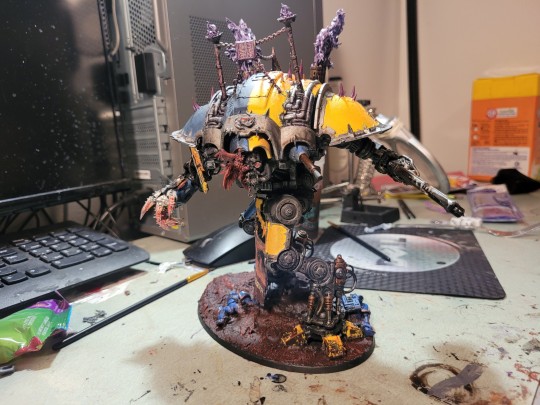


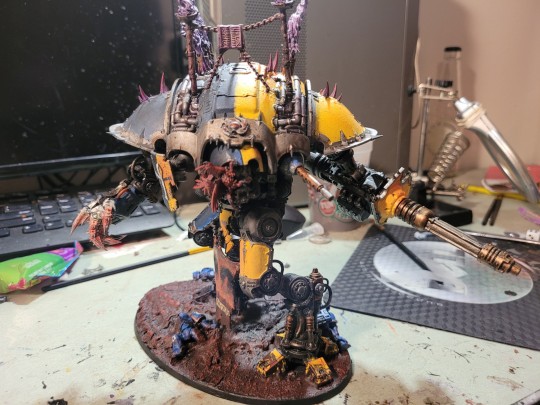

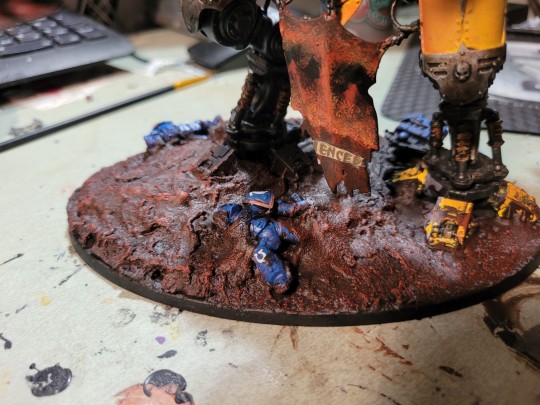

She's Finally DONE
350 notes
·
View notes
Text

i forgot i drew caesarean during my -tober challenge
#i didn't mean to write caesarean but it's funnier this way#art#digital art#bigtop burger#bigtop burger fanart#bigtop burger cesare#cesare#worthikids
278 notes
·
View notes
Text
Behold, Seat of the Unknown Lord, Terror of the Segmentum, Bearer of the Fell Halo, Fear of Dynasties, Knight Tyrant of the Ninth Lance of the Last Clan of House Caesarean, the Unbowed Roost!


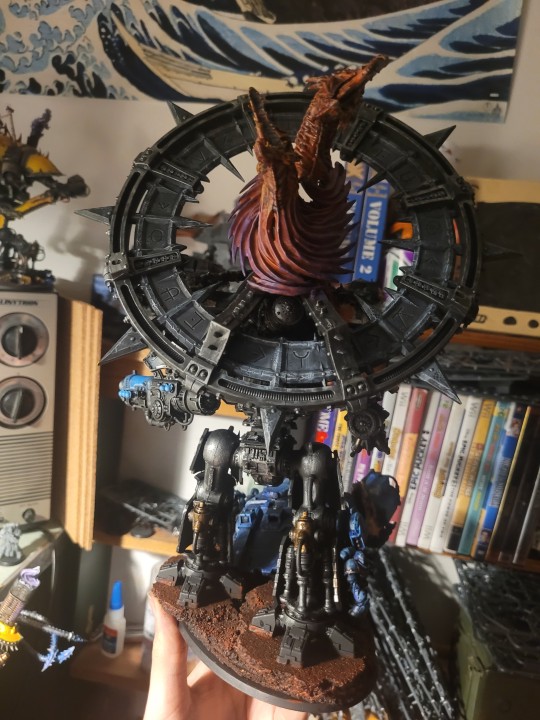
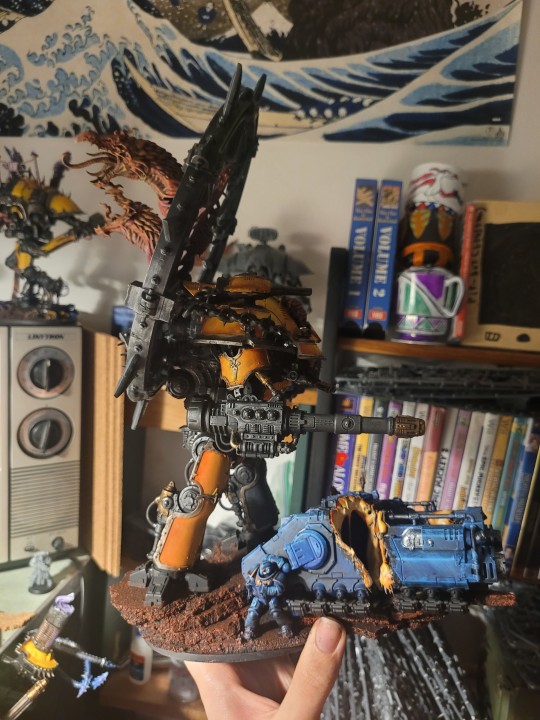
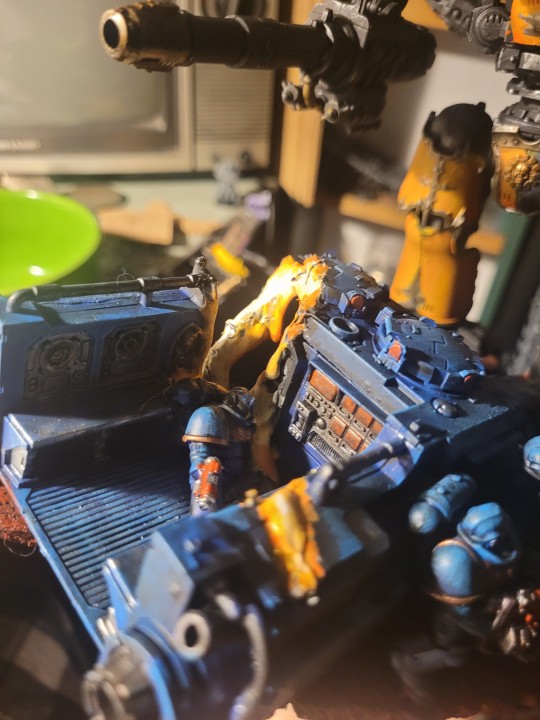
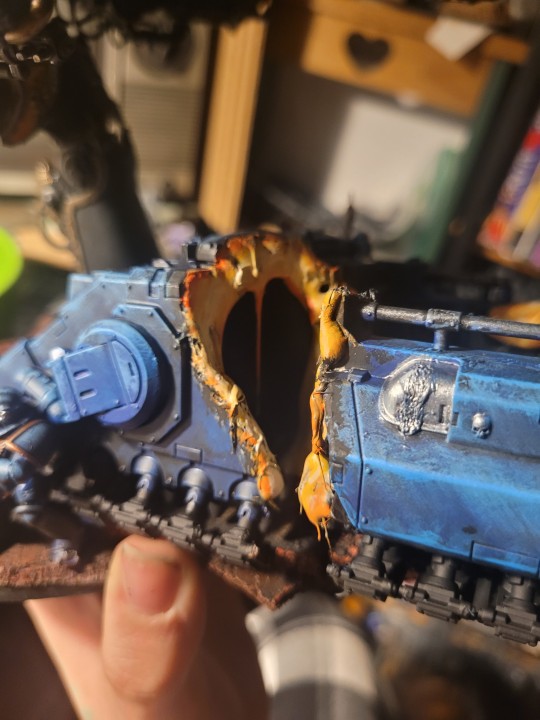



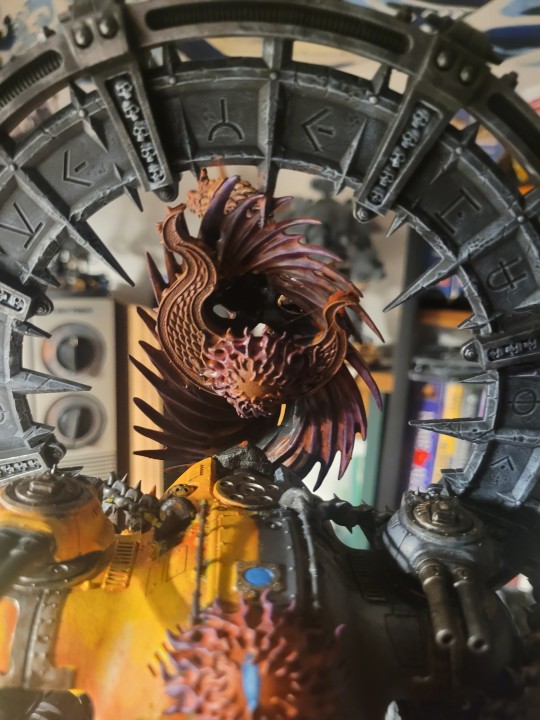
70 notes
·
View notes
Text
star trek went from Trip being Super weirded out by accidentally getting pregnant via an alien species to Rutherford, who got accidentally (it was an accident to him anyway) knocked up and then found it so run of the mill that he got pregnant and had a baby in the space of two minutes that he failed to mention that it had happened to any of his closest friends.
This is progress.
#lower decks spoilers#lower decks#emergency caesareans in cave systems with the catgirl doctor are just The Norm for him
65 notes
·
View notes
Text
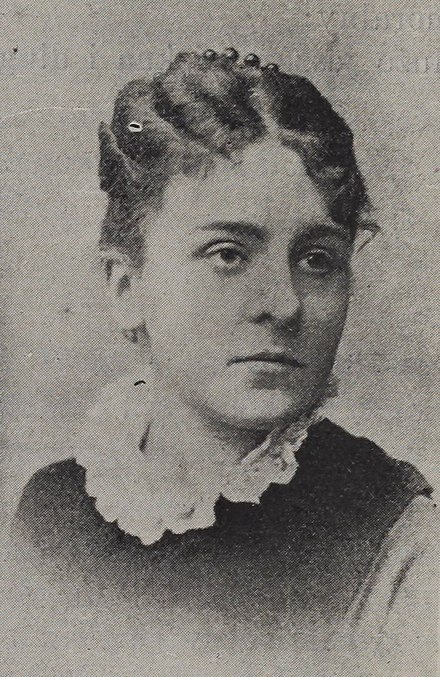
Anna Tomaszewicz-Dobrska (1854–1918) was the second Polish woman to become a medical doctor, and the first female Polish medical doctor to practice in Poland. She obtained her medical degree in 1877 in Zurich.
She knew that she wanted to be a doctor since she was a little girl, which was something unheard of at the time.
After obtaining her medical degree, she worked in Berlin and Vienna for a short time. However, she was not allowed to pass the state exam, which would have given her the right to practice medicine in Poland, and she was refused as a member of the Polish Society of Medicine because she was a woman.
She faced a huge amount of pure, disgusting misogyny for a simple fact that she was a female doctor.
She was called a whore. Men were claiming that she should stick to her womanly role and be only a wife and a mother. They also said that she would never be able to perform a successful surgery, because women couldn't stand a sight of blood. One man (whose name doesn't deserve to be mentioned) wrote a story about a female medical student who went to the university for a sole purpose of finding a husband.
Many highly respected doctors, writers, politicians and other important figures ridiculed her and did everything they could to make her miserable.
But she didn't give up.
She moved to St. Petersburg and passed the state exam there. This allowed her to practice women's health and pediatric medicine within the Polish Kingdom and Russia. In 1882 an epidemic of infection during childbirth broke out in Warsaw, and a few maternity shelters were opened; one of it was given to Anna to lead.
The number of deaths during and after childbirth was significantly lower under her lead than in any other place led by men.
She was one of the first doctors who recognized the importance of antiseptics (doctors simply washing their hands before a surgery wasn't so common back then). She was also empathetic towards her patients, which was something revolutionary at the time as well.
In 1896 she became the first person to perform a Caesarean section in Warsaw.
She's one of the many examples of women who fought for themselves despite men doing everything they could to break and humiliate her. She's truly a huge inspiration and deserves utter respect.
#radfem#radical feminism#radfem safe#radblr#feminism#women's rights#women's liberation#Anna Tomaszewicz-Dobrska#anna tomaszewicz#women in stem#female doctor#female pioneer#heroine#women in history#herstory#women's healthcare#pediatric medicine#childbirth#post partum care#caesarean section#medicine#women in medicine#medical student#antiseptics#important women#misogyny#women's oppression#feminizm#polska#polska historia
49 notes
·
View notes
Text

#monsterohnenamen#effy gif#effy stonem#skins effy#effy vibes#effy aesthetic#kaiserschnitt#caesarean section
22 notes
·
View notes
Text
The Agony: Red Hood!Steph's civilian style is 1000% Pastel Punk, but 99% of reference images I can find for that style expose waaaaaay more skin than I think she'd be comfortable showing with all her scars.
#Mainly the caesarean one tbh#I think Steph's very self-conscious about that and also doesn't want to be reminded her daughter is beyond her reach now.#But her feelings towards that one extend to the other big ones; she doesn't want to be reminded or have to answer questions#and torso-makeup feels like way too much work for a dead woman so she just. Covers up.#Not saying she dresses ''conservatively'' at all just... she's not going to be wearing crop-tops or mesh-shirt-w/-bikini-combos.#//#reverse!robins#reverse robins#reverse robins au#reverse order robins#reverse order batkids#reverse batkids#reverse batfam#reverse batfamily#robin#robins#stephanie brown#rh!steph#red hood steph#red hood!steph#red hood stephanie brown#red hood!stephanie brown#my life#mine
20 notes
·
View notes
Text
“So women with access to emergency care are the ones that live,” she said. “Women that don’t, die.”
https://www.washingtonpost.com/world/2024/01/21/gaza-childbirth/
JERUSALEM — Walaa didn’t expect the birth of her fourth child to spark abject fear. But by the time her contractions started, the whole family was frantic.
There were no ambulances to be seen in the streets of Gaza’s Rafah City, she said, now so crammed with displaced families that there was barely any food left available for the 27-year-old.
When her uncle Wissam, a doctor, reached the tent where she had lived for weeks in the cold, he said, he could see they had run out of time. “I’m having the baby now,” she kept telling him. It was dark, and she was scared.
His cellphone flashlight was all they had to see by.

The humanitarian catastrophe caused by Israel’s three-month military campaign against Hamas in Gaza counts some 52,000 pregnant women among its greatest victims. As airstrikes push 1.9 million people into an ever-smaller corner of the besieged enclave, disease is spreading, famine is looming and levels of anemia are so high that the risk of postpartum hemorrhage has soared and breastfeeding is often impossible. Forty percent of pregnancies are high-risk, CARE international estimates.
Prenatal care is almost nonexistent — what remains of Gaza’s hospital network is on its knees, at 250 percent capacity and consumed with treating mass casualties from Israeli bombing. Far more women are giving birth outside of medical facilities — in displacement camps, even in the street — than inside them.
Damage to facilities and communications blackouts — the strip lost cellphone service for a week this month — have left Gaza’s health ministry unable to compilereliable data for infant or maternal mortality during the conflict. But doctors and aid groups say miscarriage and stillbirths have spiked.
“What we know about pregnancy-related complications is that it’s hard to prevent them in any setting, but the way that we save a woman and newborn’s life is we treat the complication quickly,” said Rondi Anderson, a midwifery specialist for the Project HOPE aid group.
“So women with access to emergency care are the ones that live,” she said. “Women that don’t, die.”
The only place that Wissam could find to deliver his terrified niece’s baby was a spot of cold earth between the tents. Aid workers hung bedsheets to give the woman a modicum of privacy. No one had been able to contact Walaa’s husband, and her mother was so scared that at times she had to look away. They cut the boy’s umbilical cord with an unsterilized scalpel and they filled tin cans with hot water to keep him warm. He weighed 7 pounds and Walaa named him Ramzy.
The family spoke on the condition that only their first names be used because they feared for their safety in the event that Israeli troops entered the town.
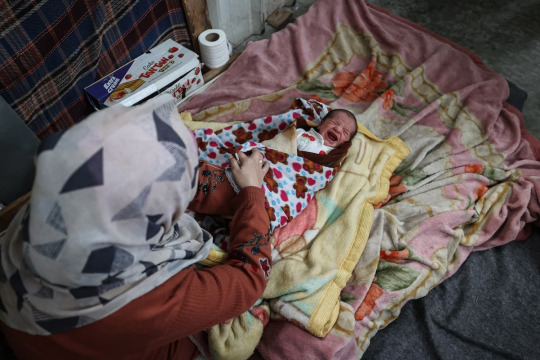
Baby Ramzy is 5 days old. (Loay Ayyoub for The Washington Post)
They fled their home in northern Gaza so abruptly that no one thought to grab clothes for the baby. This week, Ramzy was swaddled in a onesie outgrown by another child in the camp. He wailed as Walaa, still in pain from tearing during the birth, gingerly pulled herself upright.
The 16-year blockade imposed by Israel and Egypt after Hamas won control of Gaza had already made pregnancy and childbirth more difficult for expecting mothers. Before the current conflict, hospitals often lacked adequate equipment and training for neonatal staff, according to Medical Aid for Palestinians, and more than half of pregnant women were anemic.
Hamas fighters streamed out of the enclave on Oct. 7 to kill around 1,200 people in Israel and take another 240 hostage. Israel responded with a bombing campaign and ground war to eradicate Hamas, killing almost 25,000 Palestinians, most of them civilians, to date.
The South African legal team that accused Israel before the International Court of Justice this month of committing genocide during the conflict argued that the obstruction of lifesaving treatment since Oct. 7 amounts to preventing births.
A lawyer for Israel called allegations that it is obstructing the delivery of food, water, fuel and other supplies critical for Gaza “tendentious and partial,” and said it was working “around-the-clock” to help scale up the volume of aid making it into the enclave.
Hanaa al-Shawa, 23, gave birth to her first child, Ayla, during the coronavirus pandemic, and the little girl, she said, brought her family a “glimmer of hope.” Shawa and her husband Mustafa, 25, were ecstatic when they learned in July that another child was on the way. The war began in October, and the future they dreamed of fell apart. “I had felt overwhelming joy,” Shawa recalled. “I did not realize that this joy would turn into great suffering.”
Nearly 20,000 babies were born in Gaza during the first 105 days of the war, UNICEF reported Friday. Delays in the delivery of lifesaving supplies, the U.N. children’s agency said, have left some hospitals performing Caesarean sections without anesthetic. Spokeswoman Tess Ingram said she met a nurse at Gaza’s Emirati maternity hospital who had helped with postmortem caesarians on six dead women.
“Seeing newborn babies suffer while some mothers bleed to death should keep us all awake at night,” Ingram told reporters Friday. “In the time it has taken to present this to you, another baby was likely born, but into what?”
“Becoming a mother should be a time of celebration,” she said. “But in Gaza it’s another child delivered into hell.”
For the five pregnant women interviewed by Washington Post reporters, fear that mother or baby might not survive suffused their waking thoughts — and made appearances in nightmares, too.
Shawa and Mustafa left their home in Gaza City’s Yarmouk Street in the second week of October. The Israel Defense Forces had ordered 1.1 million people in northern Gaza to move south for what it described as their own safety.
“I was afraid that I would miscarry because of the power of the rockets,” she said.

Displaced Palestinian families from the northern and central Gaza Strip evacuate toward southern Gaza on Oct. 13. (Loay Ayyoub for The Washington Post)
Many pregnant women made the 20-mile journey from north to south on foot, their legs swollen and joints heavy as they carried their luggage, three women who made the journey told The Post.
When Ayla was born, her family had a room full of toys ready for her. The room in which Shawa’s second child, a girl, will spend her first weeks, in a friend’s home in the Tel al-Sultan area, is tainted with asbestos, she said.
“We carried Ayla here in just the clothes she was wearing, and we don’t even have anything warm for her,” Shawa said. “If I’m unable to provide for her, what will I do for my next child?”
Rising food scarcity and malnutrition can cause potentially life-threatening complications during childbirth and lead to low birth weight, wasting, failure to thrive and developmental delays.
Shawa said she had only eaten tinned food, with no access to fruit or vegetables, since she left her home three months ago. Doctors have said her iron levels are low and her blood pressure is high. Mustafa searches daily but has found no suitable medication to control it.
Saja Al-Shaer, 19, started to feel like she was too young to become a mother. Her weight had dropped below 110 pounds, she was anemic, and her husband had not managed to get her medication, either. “He spent three days knocking on the doors of pharmacies,” she said. “I do not know if I will see this child or not.”
In late December, doctors at the al-Aqsa Hospital, 11 miles to the north, received a pregnant woman whose high blood pressure caused eclampsia and bleeding to her brain, according to Deborah Harrington, a British obstetrician who volunteered at the hospital with a Medical Aid for Palestinians team.
The baby was delivered by a C-section, Harrington said. The mother was still on life support when the physician left two weeks later.
“These women are presenting it in much more extreme condition,” Harrington said. “They’re just not getting hypertensive treatment. They’re not being screened for diabetes. If they’re diabetic, they’re not getting treatment for their diabetes.
“They know that actually accessing care, as it often is for women in conflict, is really difficult and fraught with danger. At night, there is often no light, so moving around is really difficult. You can’t call an ambulance because there’s no signal. The women I saw were really frightened.”

Walaa with her uncle Wissam, who helped deliver her newborn son. (Loay Ayyoub for The Washington Post)
From the corner of the damp room where Walaa was tending to Ramzy on Friday, she worried about where they would find clean water or baby formula. Her family had looked everywhere for diapers, but come up empty. In Tel al-Sultan, Shawa was fixating on rumors that Israel’s army would direct them to evacuate again. The walking, the carrying, the sense that nothing around her was hygienic — it all frightened her.
But she had made one decision that no shortage or military orders could change. She would name her daughter after her sister-in-law, killed in an Israeli airstrike weeks earlier while trying to find shelter for her own children.
The girl, she said, would be called Heba. In Arabic, it means blessing from God.
Mahfouz reported from Cairo and Harb reported from London. Loay Ayyoub in Rafah contributed to this report.
#Gaza#Maternal and infant care in gaza#Delivering babies with the light from cellphones#52000 pregnant women#40% of pregnancies in gaza are high risk#Hospitals in gaza are at 250% capacity#Medical Aid for Palestinians#Caesarean sections without anesthetic#postmortem caesarians in a desperate bid to save the baby
14 notes
·
View notes
Text
Me when pretty girls hold my hand

#or just girls idc i feel loved#this is because that pretty post basic midwifery student holds my wrist to stop me from walking away#so that i can help her push the transfer trolley for the patient who will go to the ot for her caesarean delivery#personal.txt
2 notes
·
View notes
Text
Somewhat spicy take, but I am overtired and it's still annoying me: I hate it when doctors say "Normal birth" and then look like they bit into something awful when I reply "A vaginal delivery, yes."
(Also, the child in question is 14, so I don't really see how it's relevant.)
#caesareans are important#we need to stop acting like they're a bad thing#they save lives and sanity
11 notes
·
View notes
Text
I also thought I was dying the other day or my appendix had burst but I've never had mittelschmerz before and so that was rather interesting.
#even if my appendix had burst I would have been fine#my paternal grandmother used to enjoy showing me her appendix scar and caesarean scar because she liked scaring me#so I have a very vivid deep-seated fear of it
1 note
·
View note